Abstract
The cilia-associated respiratory (CAR) bacillus is an unclassified, gram-negative, motile bacterium that has been implicated as an etiologic agent of respiratory disease in laboratory rodents. In the present study, approximately 1,200 bases of the 16S rRNA gene from three CAR bacillus isolates were sequenced. CAR bacillus-specific primers were designed on the basis of the 16S rRNA gene sequence and used in a PCR assay. The PCR assay detected as little as 500 fg of purified CAR bacillus DNA. The expected 267-bp DNA fragment was amplified from respiratory tissue of frozen, formalin-fixed, and paraffin-embedded samples from experimentally and naturally infected rats and mice. In contrast, no product was amplified from respiratory tissues of sham-infected experimental animals or animals that were serologically or histopathologically negative for the CAR bacillus. Our findings indicate that this PCR assay is a rapid, specific, and sensitive detection method for the diagnosis of CAR bacillus infection in rats and mice.
Full text
PDF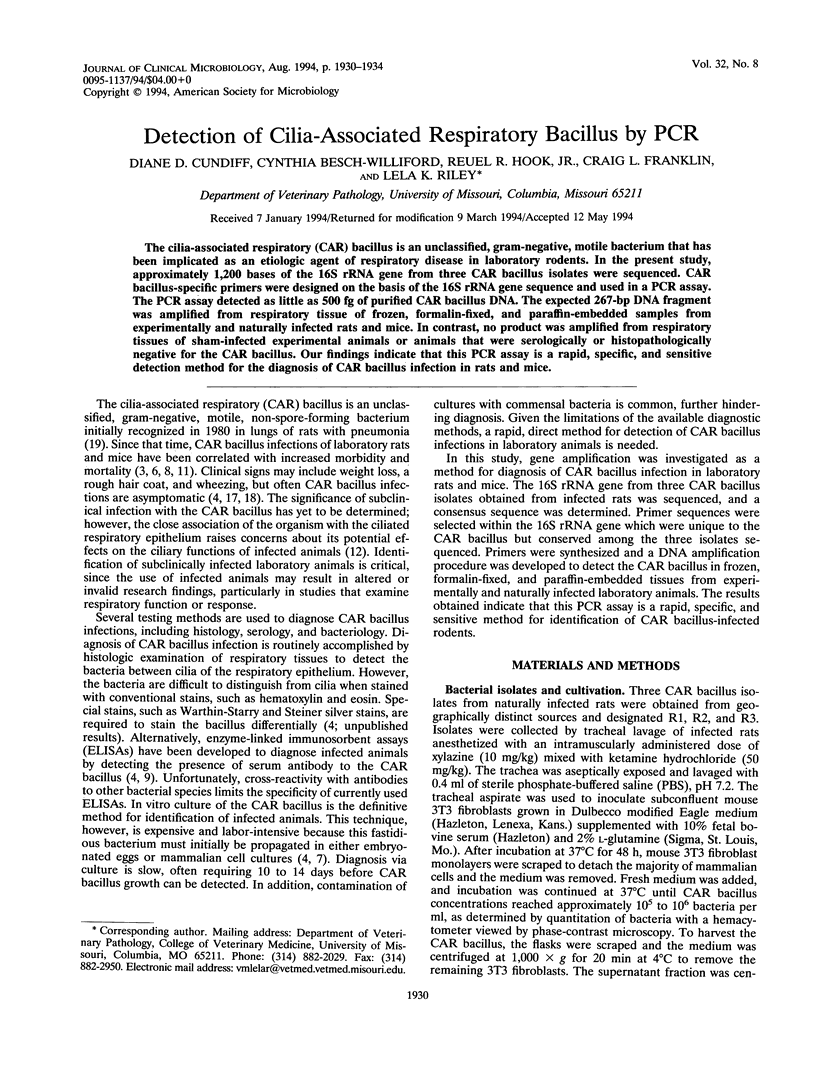
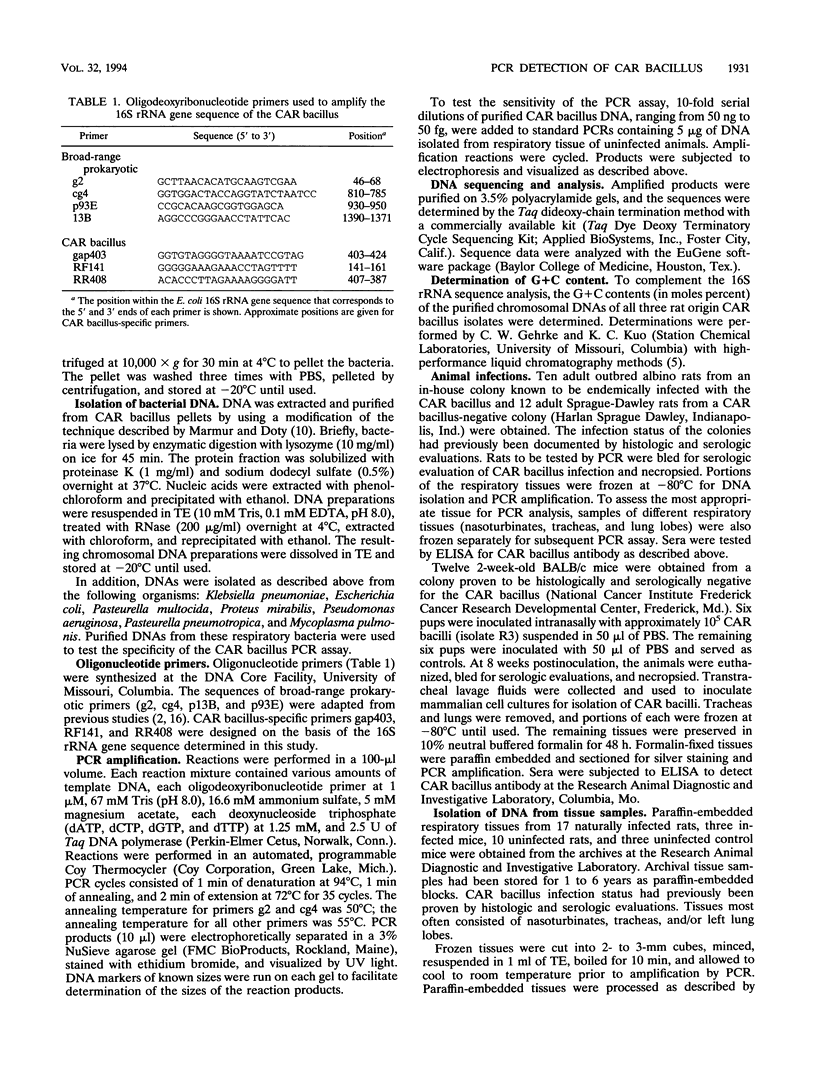
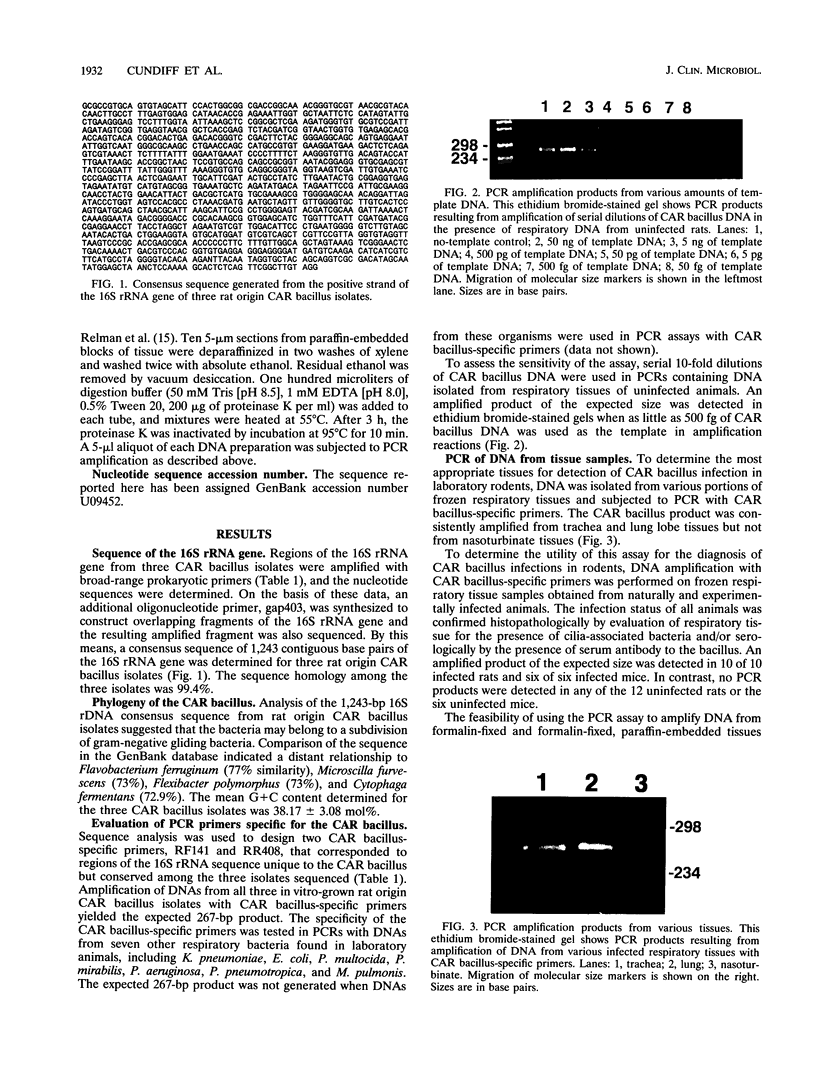
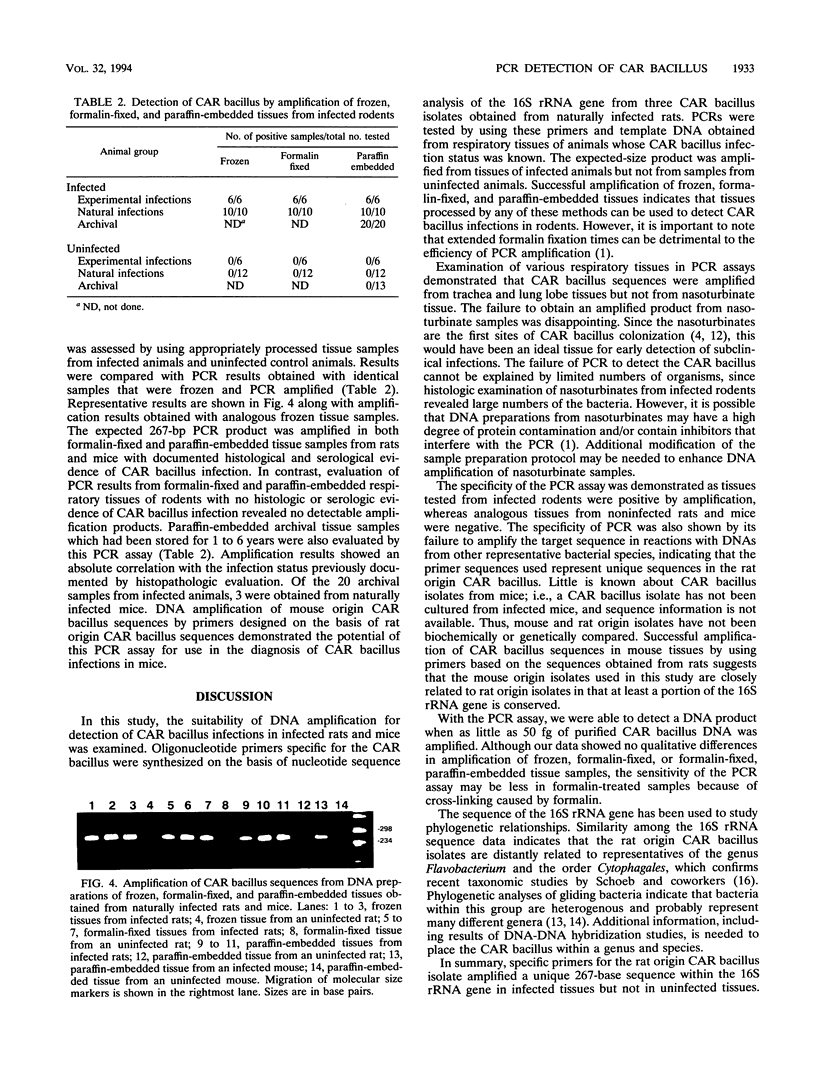
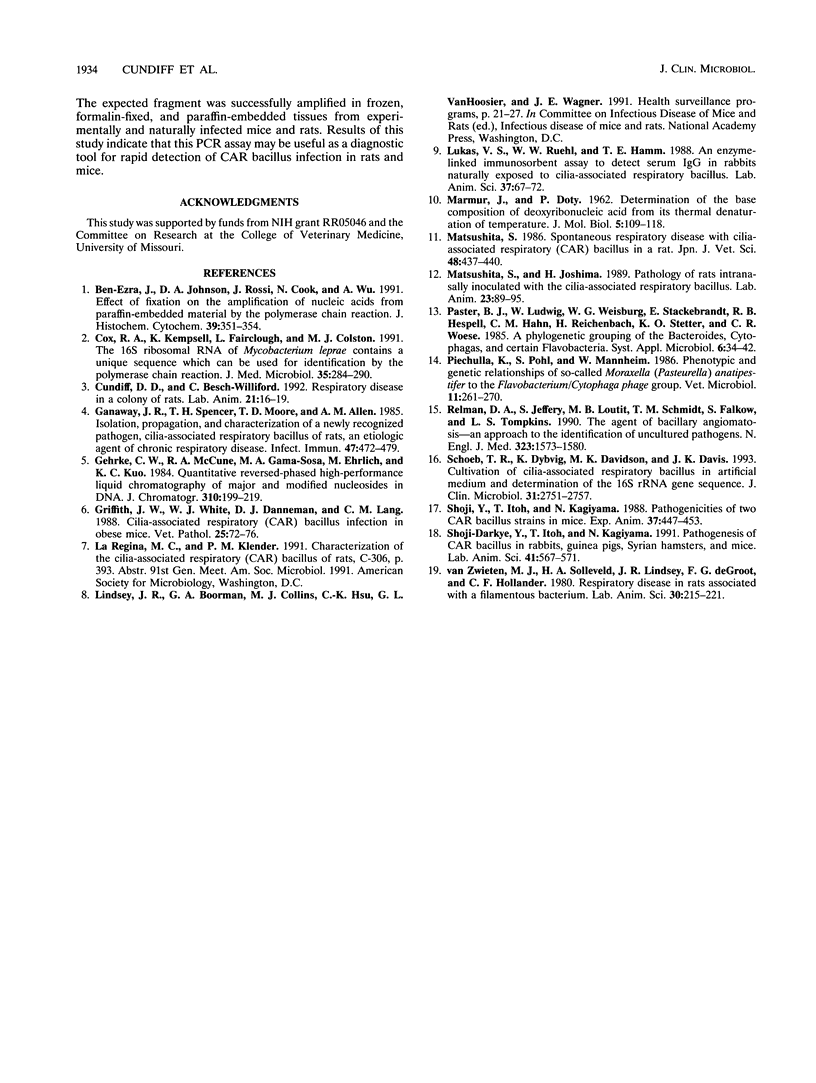
Images in this article
Selected References
These references are in PubMed. This may not be the complete list of references from this article.
- Ben-Ezra J., Johnson D. A., Rossi J., Cook N., Wu A. Effect of fixation on the amplification of nucleic acids from paraffin-embedded material by the polymerase chain reaction. J Histochem Cytochem. 1991 Mar;39(3):351–354. doi: 10.1177/39.3.1704393. [DOI] [PubMed] [Google Scholar]
- Cox R. A., Kempsell K., Fairclough L., Colston M. J. The 16S ribosomal RNA of Mycobacterium leprae contains a unique sequence which can be used for identification by the polymerase chain reaction. J Med Microbiol. 1991 Nov;35(5):284–290. doi: 10.1099/00222615-35-5-284. [DOI] [PubMed] [Google Scholar]
- Ganaway J. R., Spencer T. H., Moore T. D., Allen A. M. Isolation, propagation, and characterization of a newly recognized pathogen, cilia-associated respiratory bacillus of rats, an etiological agent of chronic respiratory disease. Infect Immun. 1985 Feb;47(2):472–479. doi: 10.1128/iai.47.2.472-479.1985. [DOI] [PMC free article] [PubMed] [Google Scholar]
- Gehrke C. W., McCune R. A., Gama-Sosa M. A., Ehrlich M., Kuo K. C. Quantitative reversed-phase high-performance liquid chromatography of major and modified nucleosides in DNA. J Chromatogr. 1984 Sep 28;301(1):199–219. doi: 10.1016/s0021-9673(01)89189-5. [DOI] [PubMed] [Google Scholar]
- Griffith J. W., White W. J., Danneman P. J., Lang C. M. Cilia-associated respiratory (CAR) bacillus infection of obese mice. Vet Pathol. 1988 Jan;25(1):72–76. doi: 10.1177/030098588802500110. [DOI] [PubMed] [Google Scholar]
- MARMUR J., DOTY P. Determination of the base composition of deoxyribonucleic acid from its thermal denaturation temperature. J Mol Biol. 1962 Jul;5:109–118. doi: 10.1016/s0022-2836(62)80066-7. [DOI] [PubMed] [Google Scholar]
- Matsushita S., Joshima H. Pathology of rats intranasally inoculated with the cilia-associated respiratory bacillus. Lab Anim. 1989 Apr;23(2):89–95. doi: 10.1258/002367789780863600. [DOI] [PubMed] [Google Scholar]
- Matsushita S. Spontaneous respiratory disease associated with cilia-associated respiratory (CAR) bacillus in a rat. Nihon Juigaku Zasshi. 1986 Apr;48(2):437–440. doi: 10.1292/jvms1939.48.437. [DOI] [PubMed] [Google Scholar]
- Piechulla K., Pohl S., Mannheim W. Phenotypic and genetic relationships of so-called Moraxella (Pasteurella) anatipestifer to the Flavobacterium/Cytophaga group. Vet Microbiol. 1986 Mar;11(3):261–270. doi: 10.1016/0378-1135(86)90028-3. [DOI] [PubMed] [Google Scholar]
- Relman D. A., Loutit J. S., Schmidt T. M., Falkow S., Tompkins L. S. The agent of bacillary angiomatosis. An approach to the identification of uncultured pathogens. N Engl J Med. 1990 Dec 6;323(23):1573–1580. doi: 10.1056/NEJM199012063232301. [DOI] [PubMed] [Google Scholar]
- Schoeb T. R., Dybvig K., Davidson M. K., Davis J. K. Cultivation of cilia-associated respiratory bacillus in artificial medium and determination of the 16S rRNA gene sequence. J Clin Microbiol. 1993 Oct;31(10):2751–2757. doi: 10.1128/jcm.31.10.2751-2757.1993. [DOI] [PMC free article] [PubMed] [Google Scholar]
- Shoji-Darkye Y., Itoh T., Kagiyama N. Pathogenesis of CAR bacillus in rabbits, guinea pigs, Syrian hamsters, and mice. Lab Anim Sci. 1991 Dec;41(6):567–571. [PubMed] [Google Scholar]
- Shoji Y., Itoh T., Kagiyama N. Pathogenicities of two CAR bacillus strains in mice and rats. Jikken Dobutsu. 1988 Oct;37(4):447–453. doi: 10.1538/expanim1978.37.4_447. [DOI] [PubMed] [Google Scholar]
- van Zwieten M. J., Solleveld H. A., Lindsey J. R., de Groot F. G., Zurcher C., Hollander C. F. Respiratory disease in rats associated with a filamentous bacterium: a preliminary report. Lab Anim Sci. 1980 Apr;30(2 Pt 1):215–221. [PubMed] [Google Scholar]





